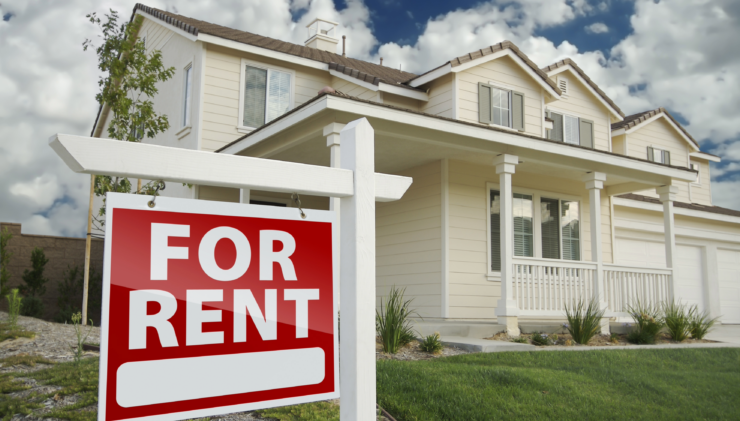 April Marks Distracted Driving Awareness Month
April Marks Distracted Driving Awareness MonthCommon misconceptions about personal insurance often cause people to go without the coverage they need. Here are the answers to the top 10 most important personal insurance questions.
1. How much homeowners insurance do I need?
It’s smart to purchase enough insurance to cover the cost of rebuilding. Since construction costs can increase after a widespread disaster, due to increased demand, you might want to consider a guaranteed replacement cost value policy. Also be aware that many policies have a coinsurance fee that applies to all claims (even ones below your policy limit) if you underinsure your home.
In addition, make sure you have enough coverage for your personal belongings. If you have high-value items – such as art, antiques, a wine collection, sporting equipment or jewelry – contact your insurer about listing these items separately to ensure you have adequate coverage.
2. How much auto insurance do I need?
At an absolute minimum, you need to maintain enough auto insurance to meet the requirements in your state. In California, you need a minimum of $15,000 for injury or death to one person, $30,000 for injury or death to more than one person, and $5,000 for property damage. Oregon requires more coverage: $25,000 for injury or death to one person, $50,000 for injury or death to more than one person, $20,000 for property damage, $15,000 in personal injury protection, and $25,000 per person or $50,000 per crash of uninsured motorist coverage. If you have a car loan, your lender will almost certainly require you to maintain comprehensive and collision coverage. You may want more coverage than the minimum, especially if your state’s requirements are low.
3. Can my landlord require me to buy renters insurance?
In many states, landlords can require tenants to carry renters insurance, as long as the lease mentions the requirement. For example, the Oregon Department of Consumer and Business Services says landlords can require tenants to carry renters insurance under ORS 90.222, although they cannot require tenants to name them as an additional insured on the policy.
Carrying renters insurance is a smart idea anyway. After a fire, burglary, or other covered event, the landlord’s insurance will only cover the landlord’s losses, such as the cost to repair the building; it will not cover your personal losses, such as damage to your belongings. Renters insurance also provides some liability protection.
4. Does homeowners insurance cover flood damage?
Homeowners insurance does NOT cover flood damage. You can secure flood coverage through the National Flood Insurance Program or a private insurance company. Other common exclusions include earthquakes, pests, and wear-and-tear damage.
5. What is full auto insurance?
People often talk about “full auto insurance,” but you won’t see a policy with this name. Full auto insurance is a common term to describe an auto insurance package that includes both liability coverage and coverage for your own vehicle. The liability coverage typically includes the bodily injury and property damage coverage your state requires, but if you cause a crash, it only applies to losses suffered by third parties. To secure protection for your own vehicle in case of collisions, theft, vandalism, animal encounters, fire, and other covered losses, you need comprehensive and collision coverage.
6. If someone steals items from my car, will I have coverage?
Auto insurance does not typically cover items stored in your vehicle. If your vehicle is stolen, you may have coverage for the vehicle under a comprehensive auto insurance policy, but this will not include the items in your car. The good news is that you likely have coverage for your stolen items under your homeowners or renters insurance policy.
7. If someone sues me, will I have coverage?
If you are sued in connection to an auto collision, you should look to your auto liability insurance policy for coverage. For other lawsuits, you may have coverage under your homeowners or renters insurance policy. The Insurance Information Institute says liability limits under a standard homeowners insurance policy usually start at around $100,000 and cover lawsuits for bodily injury or property damage that you, your family members, or your pets cause to other people. Many people also purchase an umbrella policy for additional liability protection.
8. What if someone borrows my car and is involved in an accident?
This one is tricky. If you lend your car to someone and that person is involved in an accident, your insurance policy can respond to the claim. However, the insurers of the two drivers involved in the accident may also respond. Each policy’s terms, the details of the accident and who is at fault may all factor into how each insurer responds to the claim.
9. Will my premiums increase if I have a claim?
If you file a claim, your insurance premiums may increase. How much they increase will depend on many factors, including the type of claim, the number of claims you have filed, and the insurance company’s underwriting policies.
10. How can I save money on insurance?
There are many ways to save on insurance:
- Ask about discounts. For example, many auto insurance companies have discounts for safe drivers and good students.
- Consider bundling your insurance policies. Some insurers offer a discount for bundling policies. This can also make managing your coverage simpler.
- Consider raising your deductible. Keep in mind that you will be responsible for the deductible if you have a claim.
- Practice risk management to prevent claims. Avoiding claims can keep your premiums low. For auto insurance, practice safe driving. For homeowners insurance, remove fire hazards and consider installing a security system and smart leak detectors.
Do you still have questions about personal insurance? The advisors at Heffernan Insurance Brokers are here to help. Learn more.



